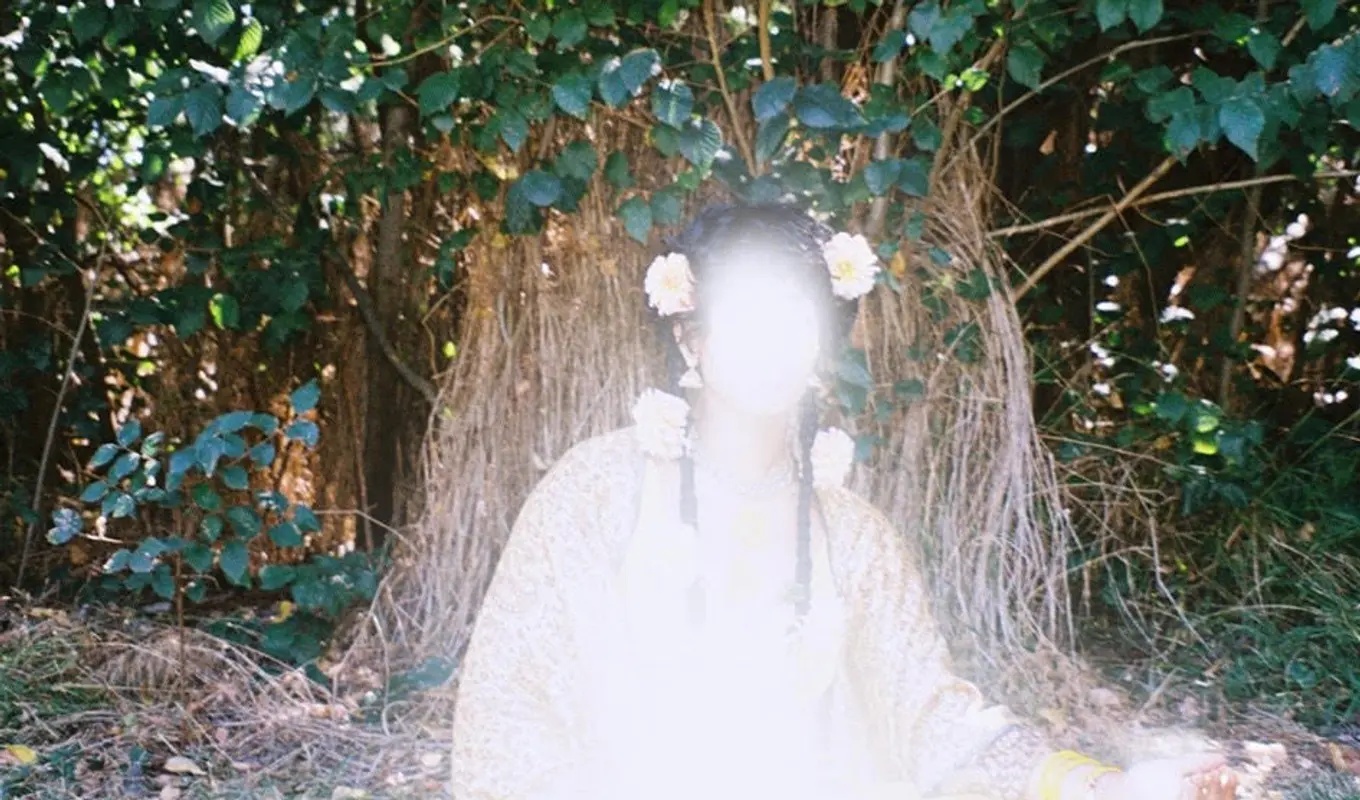“Department of 2nd Home Affairs”
Thang Do
6 July → 10 Aug 2024
Window

Thang Do presents Department of 2nd Home Affairs in the West Space Window as part of To Forever Ebb and Flow: Queer Time/Migrant Time.
The installation features 20 common Australian visa subclasses embossed on gold metal leaf and arranged in an ancestral altar installation. Australia has many visa codes, which the Home Affairs Minister in April 2023 described as "so complicated that if I drew you a diagram it would look like a tangled bowl of spaghetti".
Thang uses the Window’s form to reference a Vietnamese ancestral altar. Each element is embossed with a different visa code, representing the complicated processes new immigrants to this continent must navigate and live their lives within. Thang describes the process as "temperamental and fraught with risk, meaning solace is often found in higher powers", drawing attention to the abstract and non-human bureaucracy of the border. Such a complicated visa system guarantees frequent changes and uncertainty, contributing to an overwhelming condition of precarity for migrants.
Despite migrants often being unfairly generalised and perceived as a disruptive force endangering this land, this work is a reminder of a historical truth: that the large majority of Australia’s population is composed of settlers and migrants from the first colonial encounter.
To Forever Ebb and Flow: Queer Time/Migrant Time
Curated by Aziz Sohail, To Forever Ebb and Flow: Queer/Migrant Time is an evolutive exhibition across Monash University's MADA Gallery, and the West Space Window and brings together international artists and artists in Australia.
The project takes its departure point the distinct propositions of migrant time and queer time, and brings them into conversation.
Reflecting on Ranajit Guha’s meditation on the migrant condition as not just about belonging/disbelonging but also ‘temporal maladjustment’ which occurs due to the rupture of one’s own past (homeland) and present (settler land), this concept is complicated by the concept of queer time. As articulated by Jack Halberstam ‘alternative temporalities’ can be developed outside of logics of ‘paradigmatic markers of life experience namely birth, marriage, reproduction and death.’
How can we then locate queer migrant condition an experience that doubly complicates the notion of time and the affective relations and intimacies that unfold from it. How may we imagine dis-belonging and detachment through both these experiences? How do we consider networks and friendship found and fostered, in order to be made possible anew?
Momtaza Mehri writes, "diaspora is durational loss / we keep moving and moving and moving / we never arrive". This project embodies ebb and flow as two interlinked halves gesturing to circularity, and to conditions of withdrawal, retreat, departure, opacity and gesturing to the past i.e. to ebb and visibility, movement, advancement, arrival and gesturing to the future, or to flow. There is a recognition to move beyond the binaries between the two, understanding that both co-exist simultaneously.
Program
Ebb and Flow: Queer/Migrant Intimacies, Fri 16 Aug, 6 → 8pm
Curator Aziz Sohail in conversation with Thang Do and Mandeep Singh, followed by a reading by Parminder Kaur. Presented in partnership with un Projects and Monash University.
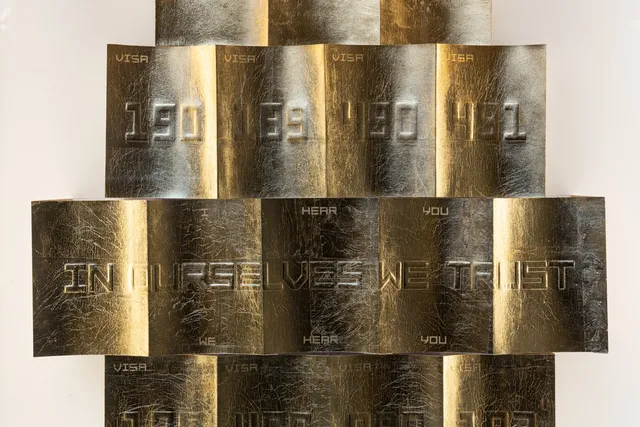
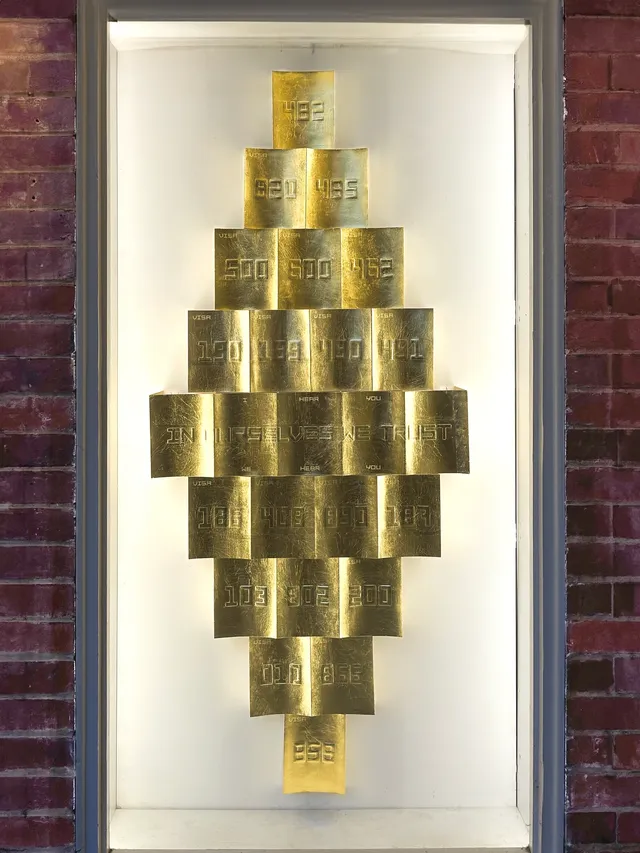
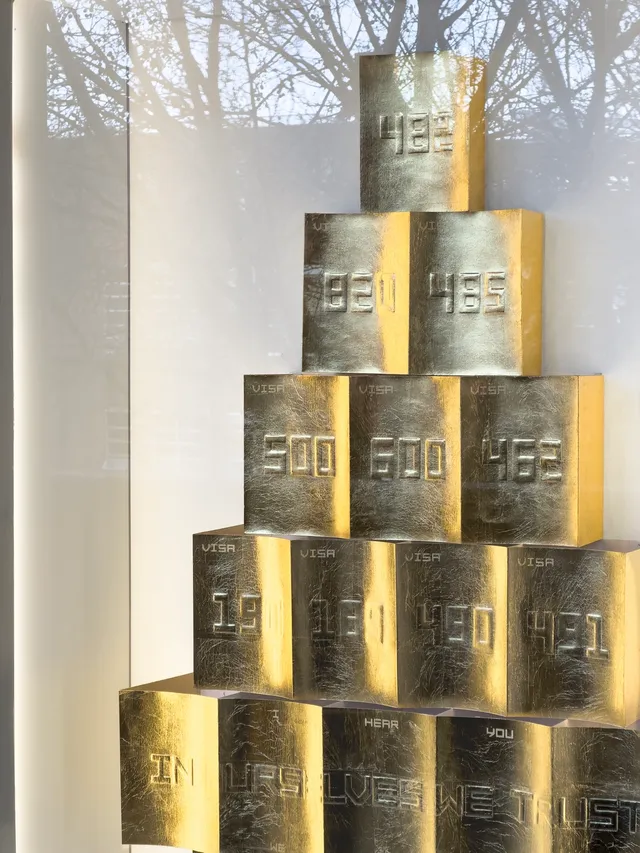
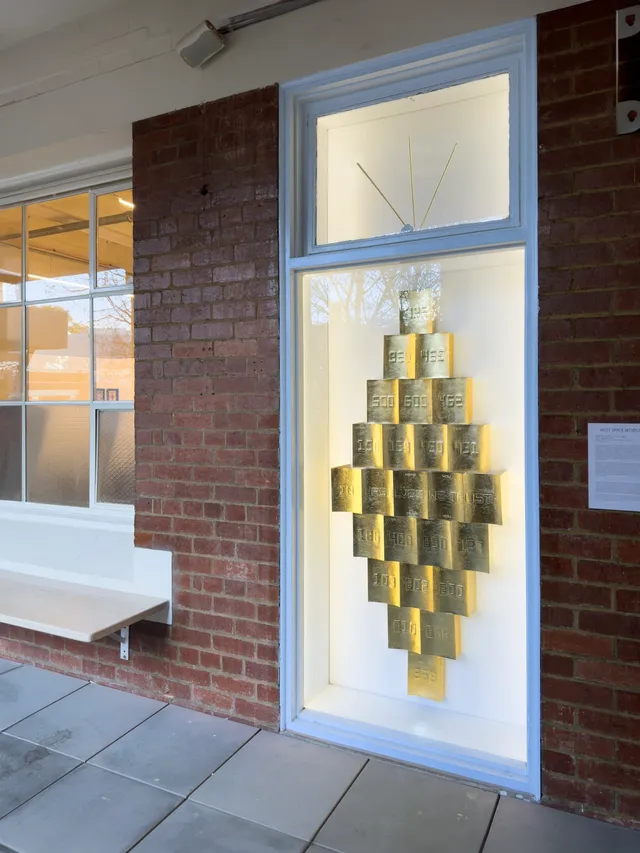

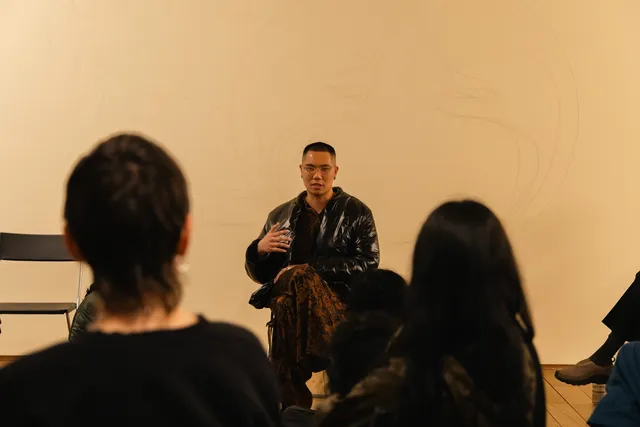
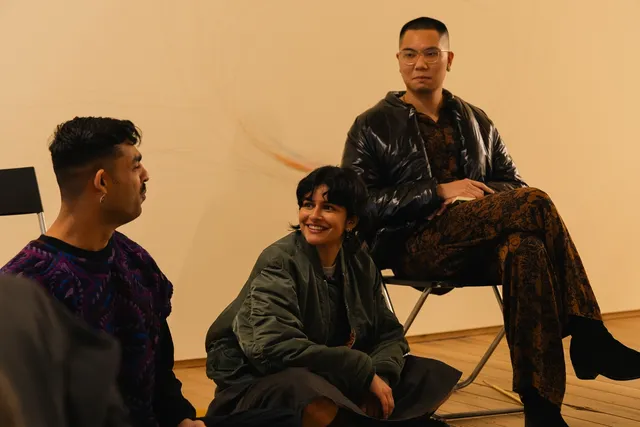
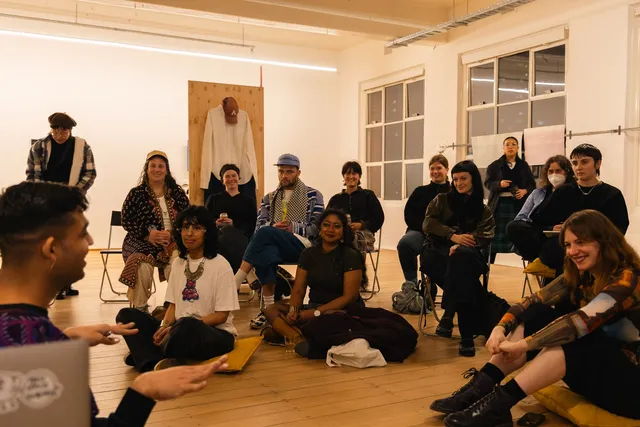
Thang Do is a queer Vietnamese artist in Naarm/Melbourne whose sculptures and installations embody the human obsession with spectacles as means of escaping reality and fuelling hope. As a migrant worker obsessed with chasing the 'American/Australian' dream, Thang manifests empowerment in his work and invites others to do the same. Working with domestic materials such as paper, glitter and foil, the artist uses techniques like embellishing, scoring, folding, to assemble fantasised vessels resembling his constant travels between the physical reality and the wishful realm of the privileged and wealthy.
Aziz Sohail is a Pakistani-born curator, writer and researcher whose work builds interdisciplinary connections between art, history, archives, literature, theory and biography and supports new cultural and pedagogical infrastructures. Their research and resultant projects honour and recognise the power of queer and feminist collectivity, sociability, joy and wayward encounter. Aziz is completing a PhD in Curatorial Practice at Monash University.
